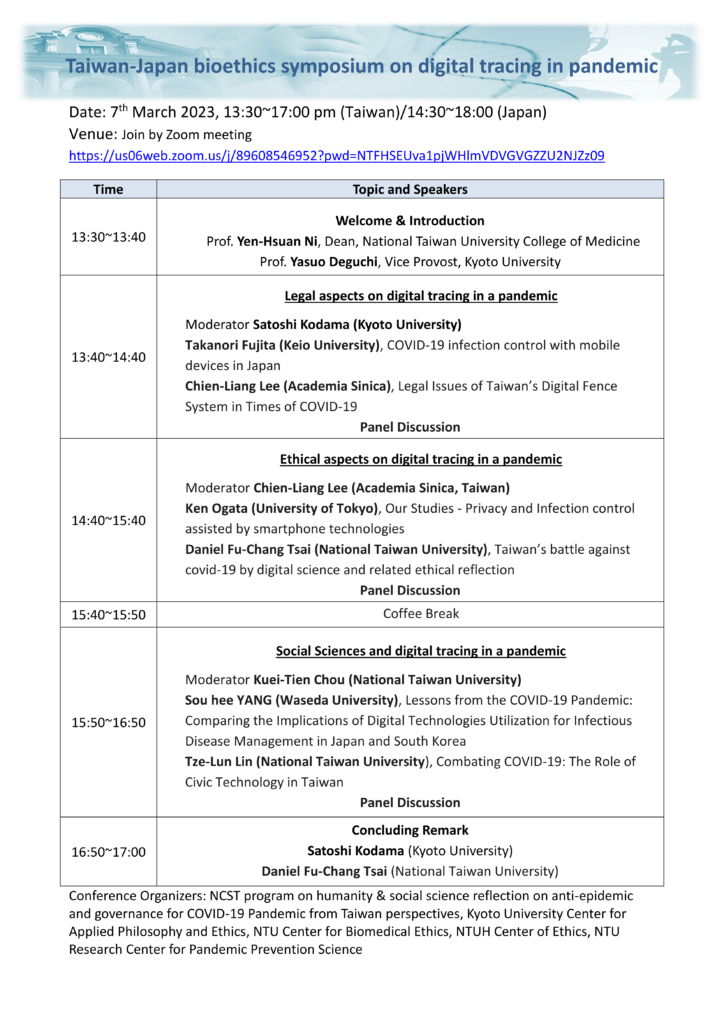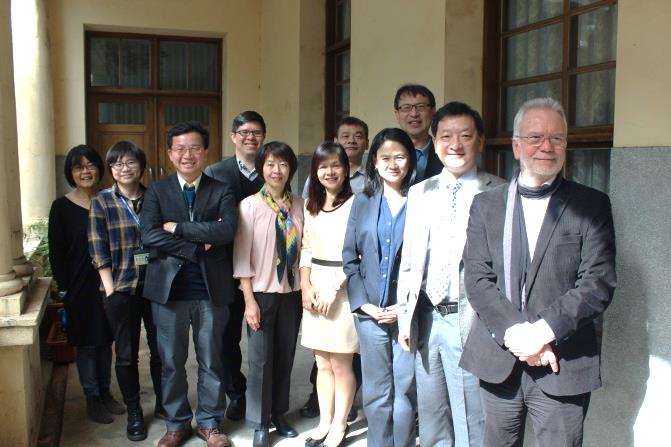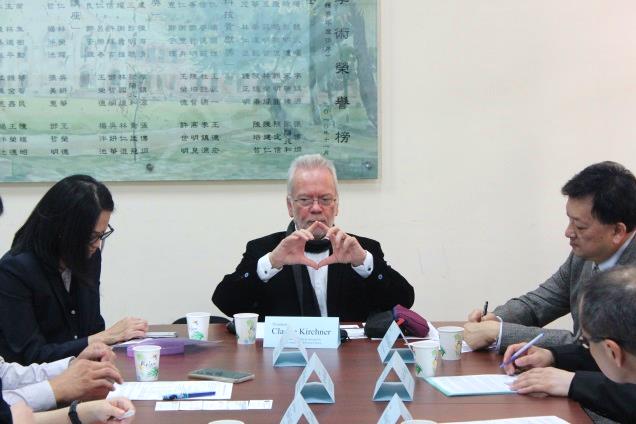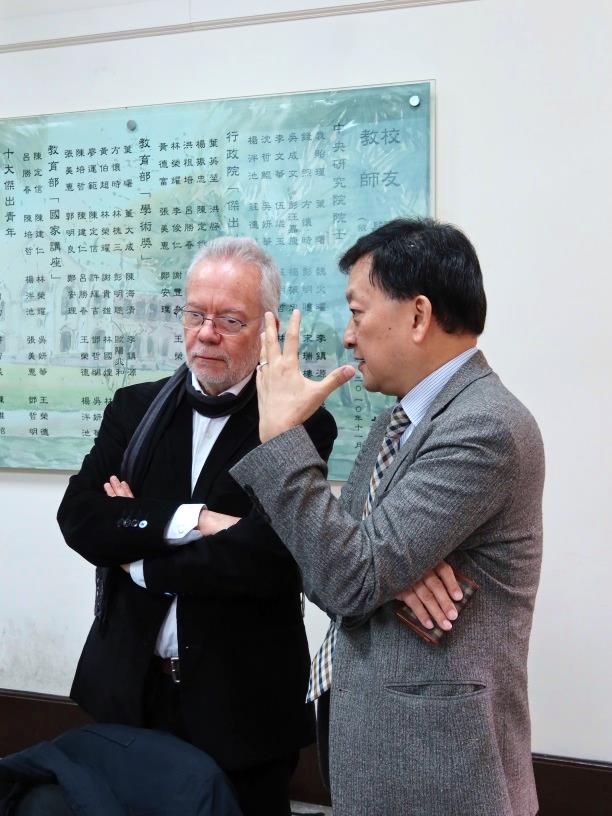會議時間:112年3月7日(二)13:30~17:00 pm (Taiwan)/14:30~18:00 (Japan)
會議地點:線上視訊
主辦單位:
NCST program on humanity & social science reflection on anti-epidemic and governance for COVID-19 Pandemic from Taiwan perspectives
Kyoto University Center for Applied Philosophy and Ethics
NTU Center for Biomedical Ethics
NTUH Center of Ethics
NTU Research Center for Pandemic Prevention Science
會議簡介:
In the past three years of the COVID-19 pandemic, governments around the world have used digital tracing related technologies to help with infection control and containment strategies; however, where should the reasonable boundaries be drawn for this kind of surveillance of citizens? In this symposium, the experts from Japan, South Korea and Taiwan were invited to discuss this issue from legal, ethical and social perspectives.




